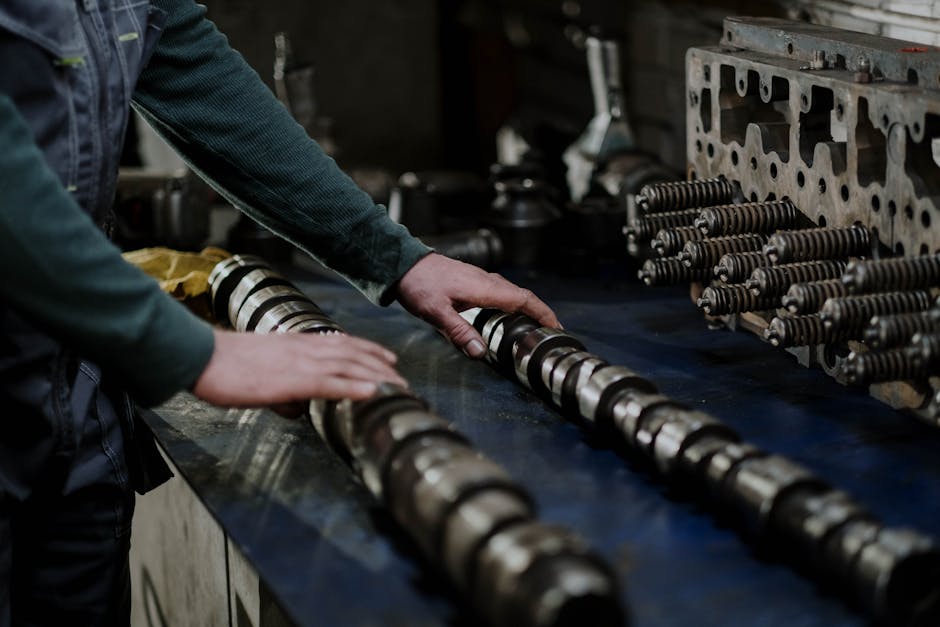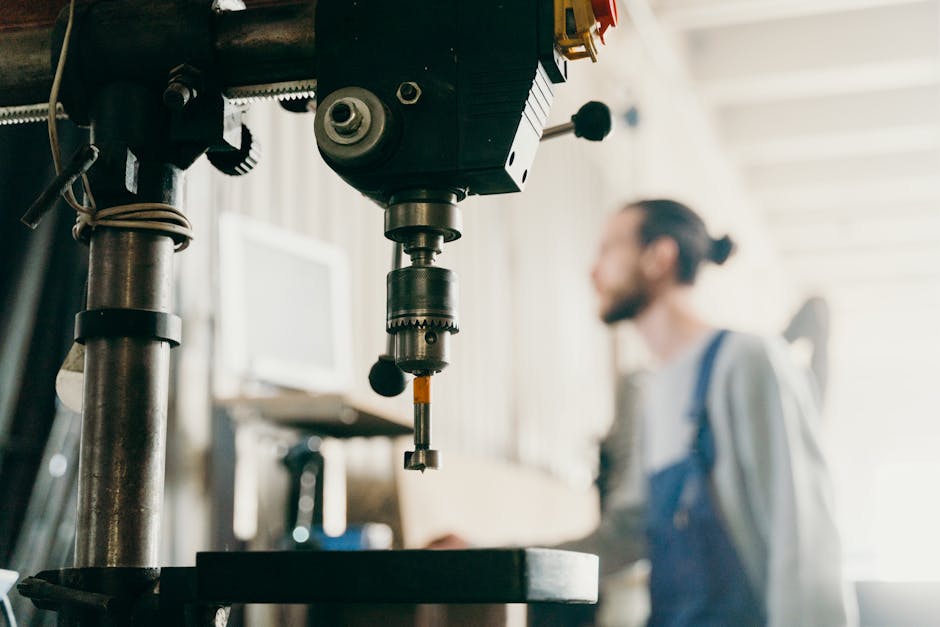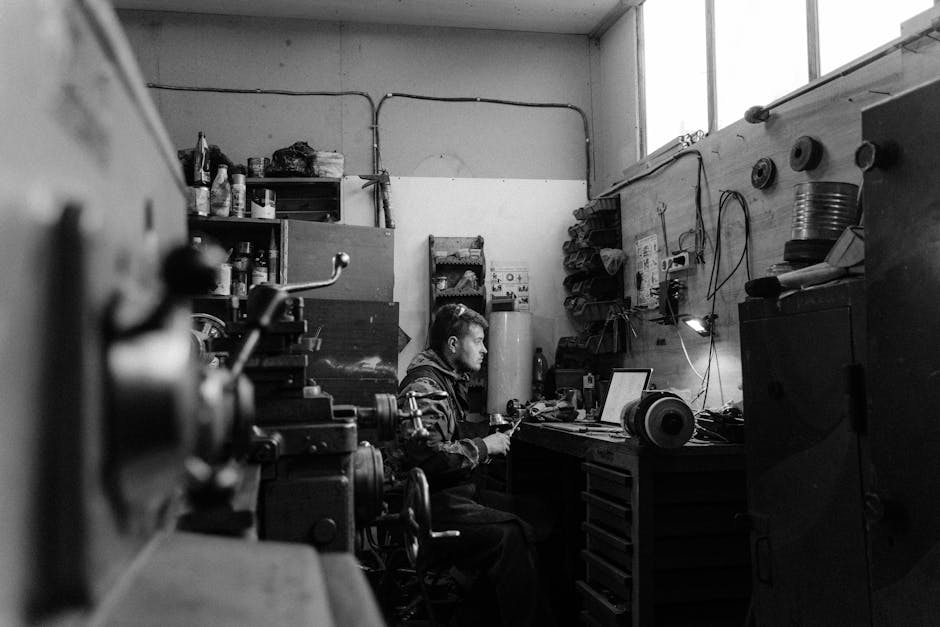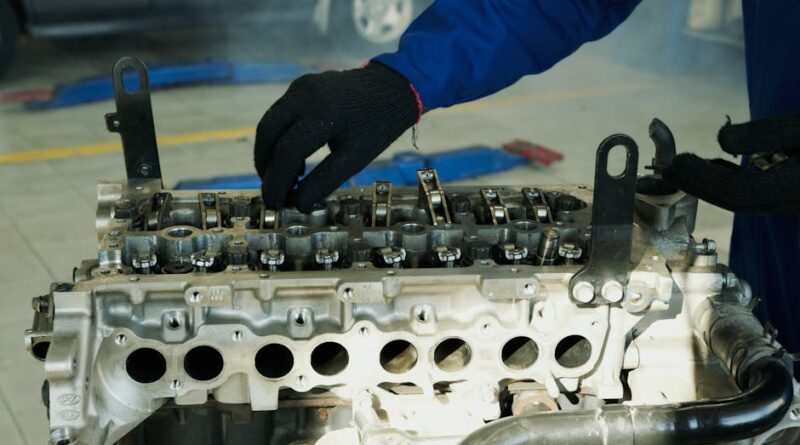Machinery Maintenance: Tools Every Technician Needs
Did you know that proper machinery maintenance can extend the life of your equipment by 30% or more? Keeping tools in top shape not only saves money but also boosts productivity. Whether you’re a seasoned technician or just starting out, having the right tools is essential.
What Are the Essential Tools for Machinery Maintenance?

Every technician needs a solid toolkit. But what tools should you include? Heres a quick list of some must-have items.
- Wrenches: Adjustable wrenches and socket sets are key. They help in tightening and loosening bolts.
- Screwdrivers: A variety of flathead and Phillips screwdrivers are crucial for any machine.
- Multimeter: This tool checks electrical circuits and helps ensure everything is running smoothly.
- Grease Gun: Keeping parts lubricated prevents wear and tear.
- Pliers: Needle-nose and channel-lock pliers assist in gripping and bending materials.
These tools are like the bread and butter of maintenance work. They help you tackle most tasks efficiently. But let’s dive deeper into each tool and it’s importance.
Why Are Wrenches So Important?

Wrenches are essential for any technician. They come in various sizes and types. An adjustable wrench can fit different bolt sizes, which makes it versatile.
Think of it like wearing a pair of sneakers. They fit most situations, whether you’re running or just walking. Likewise, adjustable wrenches save space and time.
What About Screwdrivers?

Screwdrivers might seem simple, but they are vital tools. They help secure or remove screws, which hold parts together. Imagine trying to put together a piece of furniture without a screwdriver. It would be a frustrating experience!
Having various sizes ensures you can handle any screw type. This variety makes your job easier and more efficient.
How Does a Multimeter Help?

A multimeter is a technician’s best friend. It measures voltage, current, and resistance. This tool is crucial for diagnosing electrical issues in machinery.
Imagine your car won’t start. Youd want to check the battery first, right? that’s what a multimeter does for machines. It helps you find problems quickly so you can fix them.
What is the Role of a Grease Gun?
A grease gun is essential for keeping mechanical parts lubricated. Just like oil keeps your car running smoothly, lubrication prevents wear and tear on machinery.
Regularly greasing parts reduces friction. This not only extends the life of the equipment but also improves it’s efficiency. An ounce of prevention is worth a pound of cure!
Why Do You Need Pliers?
Pliers come in handy for gripping, twisting, and cutting wires. They are versatile and can handle many challenges. For example, if you need to bend a wire into shape, needle-nose pliers are your go-to tool. They allow for precision without damaging the wire.
Just like having a good pair of scissors makes cutting paper easier, having the right pliers makes your job smoother.
What Additional Tools Should Technicians Consider?
While the basics are essential, some additional tools can enhance your maintenance work:
- Torque Wrench: Ensures bolts are tightened to the correct specifications.
- Diagnostic Software: Helps analyze machine performance and identify issues.
- Safety Gear: This includes gloves, goggles, and helmets to protect you while working.
- Flashlight: A bright flashlight is critical for seeing in tight or dark spaces.
Each of these tools plays a role in ensuring safety and efficiency. Let’s explore why they matter.
How Does a Torque Wrench Enhance Maintenance?
A torque wrench is crucial for proper assembly. It ensures bolts are tightened to specific torque levels. Over-tightening can damage components, while under-tightening can lead to failures.
Imagine trying to fix a loose door handle. If you don’t tighten it enough, the handle may fall off. A torque wrench helps avoid these problems in machinery.
Why Use Diagnostic Software?
In todays tech-driven world, diagnostic software is a game-changer. It can analyze machine performance and spot problems before they escalate.
This software collects data, much like how a fitness tracker monitors your steps. By understanding performance metrics, you can make informed decisions on maintenance schedules.
How Important is Safety Gear?
Safety gear is non-negotiable. Whether you’re dealing with heavy machinery or sharp tools, protecting yourself is essential. Gloves can prevent cuts, while goggles safeguard your eyes from debris.
Think about it: would you jump into a pool without checking for depth? Safety gear is your first line of defense in the workshop.
Why Invest in a Good Flashlight?
A bright flashlight can be a lifesaver when working in dark spaces. Whether you’re checking under a machine or inspecting tight spots, visibility is crucial.
Having a reliable flashlight is just like having a map in an unfamiliar city. It guides you through tricky situations.
How Can Technicians Stay Organized?
Keeping your tools organized is just as important as having the right ones. A messy workspace can lead to lost time and frustration.
Consider using toolboxes or pegboards to keep everything in it’s place. This organization helps you focus on the task at hand.
What Maintenance Tips Can Technicians Follow?
In addition to having the right tools, following a few maintenance tips can enhance your work:
- Schedule regular checks for machinery.
- Keep a log of maintenance activities.
- Follow manufacturer guidelines for servicing.
- Stay up-to-date on new tools and technologies.
These practices set the foundation for successful maintenance. They help avoid costly repairs and downtime.
Common Misconceptions About Machinery Maintenance
Many people believe that maintenance is only necessary when something breaks. This isn’t true! Regular check-ups can prevent problems before they happen.
Think of it like going to the doctor for a check-up. You don’t wait until you’re sick to seek help!
What Are the Benefits of Proper Machinery Maintenance?
Investing time and resources in machinery maintenance pays off. Here are some key benefits:
- Increased Lifespan: Well-maintained machines last longer.
- Enhanced Efficiency: Machines run better, saving time and energy.
- Fewer Breakdowns: Regular maintenance means fewer unexpected repairs.
- Improved Safety: Keeping equipment in working order minimizes accidents.
These benefits translate to cost savings and smoother operations. it’s a win-win!
How Can Technicians Get Started?
Ready to dive into machinery maintenance? Start by gathering your tools and creating a maintenance schedule. Educate yourself about the machinery you work with.
Resources like Maintenance World offer insights and best practices to further your knowledge.
Conclusion: Your Toolkit for Success
Having the right tools is just the beginning. Combine them with knowledge, organization, and a commitment to safety. This approach leads to successful machinery maintenance.
Remember, maintaining machinery is like caring for a car. Regular attention keeps things running smoothly. So gear up, stay informed, and keep those machines in top shape!


